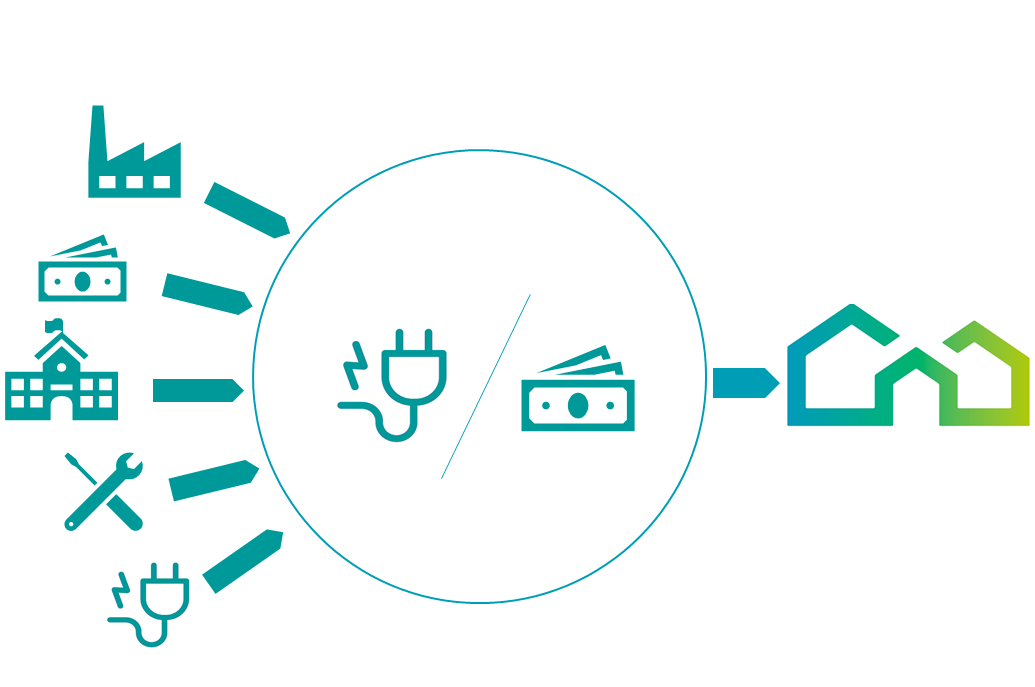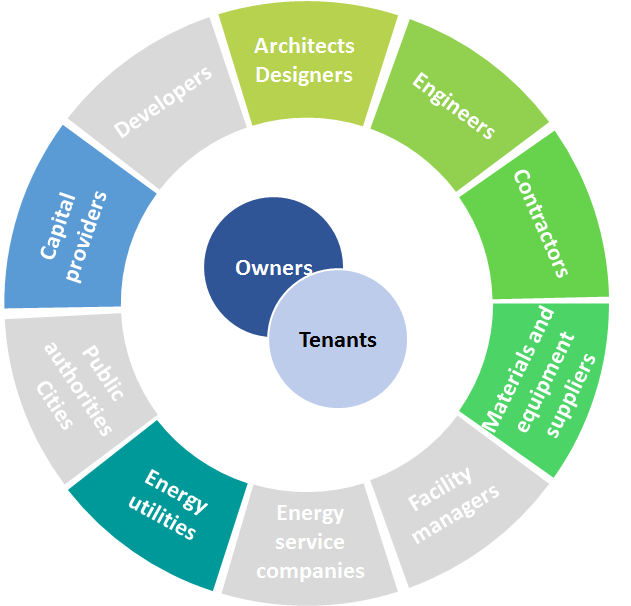One-Stop-Shop provided as a complementary business (by e.g. utilities, insurances)
Description

The One-Stop-Shop concept means that a single service provider is responsible for holistic renovation of the building as per the wishes of the building owners, including implementation of energy efficiency measures, or building internal renovation. Thus, the one-stop-shop model foresees that a single actor offers full-service holistic renovation packages including consulting, independent energy audit, renovation work, follow-up (independent quality control and commissioning) and financing.
Key actors that could develop a One-Stop-Shop Model for the renovation of existing buildings are real estate agencies, insurance companies and utilities. These key actors take advantage of their existing market position, to sell a complete package which they compose by using subcontractors to gather the right skills. The advantages and opportunities offered by the development of such a complete service package are:
- To enter a growing market (energy efficient renovation)
- To open new businesses thanks to the development of new partnerships with other companies
- To offer a clear and complete value proposition (and quotation) that fulfils the needs of the owner.
The first step to develop a new and innovative One-Stop-Shop business model is to understand the customers’ real needs. Regarding renovation, the building owner might not know precisely his own needs, as he may have limited knowledge about what can be done to the building in order to make it more energy efficient. The decision-making process is therefore a “learning process”. To guide him through this, credibility and trustworthiness is a prerequisite. As a consequence, the challenge is to create consortiums with a mixture of credibility, an existing market position, capacity and capability to supply a complete package of good quality. In the case of stakeholders that decided to expand their business into renovation as a complementary business, they shall involve directly the different trades (e.g. installers to change the heating system, carpenter to install windows, construction company to improve insulation and/or install windows, energy auditor to evaluate energy efficiency potential, and if relevant window/door supplier, insulation supplier, painters, heating system suppliers).
"What” (value proposition)
Full-service renovation, including financing. This means qualified advice, relevant competitive products and prices, one point of contact, ”hassle free”, quality and delivery guarantee, financing (both mortgage loan and loan with no security), handling of possible subsides.
"Who” (target customer)
 Owners of single-family houses with energy saving potential (especially houses with old energy equipment or built before 1970). The network of contacts already available from the main contractor shall guarantee dedicated personal assistance of a team of skilled energy advisers. Main channels to reach these customers may be: information on nationwide television, phone and email, on site visit to homeowners, banks affiliated to a large mortgage credit institution who can refer interested homeowners to the main contractor and can finance possible bought.
Owners of single-family houses with energy saving potential (especially houses with old energy equipment or built before 1970). The network of contacts already available from the main contractor shall guarantee dedicated personal assistance of a team of skilled energy advisers. Main channels to reach these customers may be: information on nationwide television, phone and email, on site visit to homeowners, banks affiliated to a large mortgage credit institution who can refer interested homeowners to the main contractor and can finance possible bought.
"How” (value chain, activities, resources)
The main service provider is the company (e.g. insurance company, utility) that decides to expand its business into renovation, thus providing their experienced consulting, administration and marketing personnel. The main activities provided by the main contractor are: marketing, advice (primarily on single products to achieve largest energy savings), contacts to partners (e.g. arrangement of customers’ visits), offer for renovation and service/after sales (checking customer satisfaction). The consortium to provide a full renovation service shall be then created and mainly made up of various contractors (who perform the customers visits and the installation), suppliers (mainly strong company brands) and a bank and mortgage credit institution.






